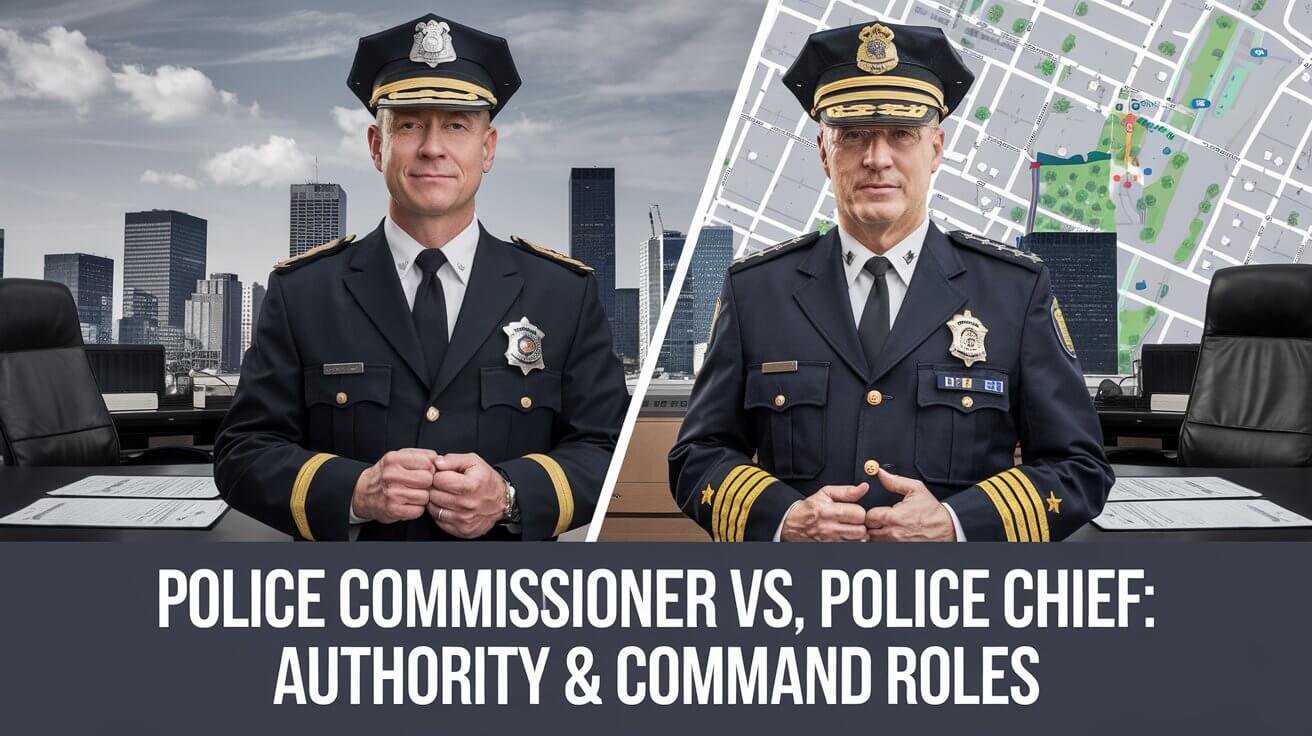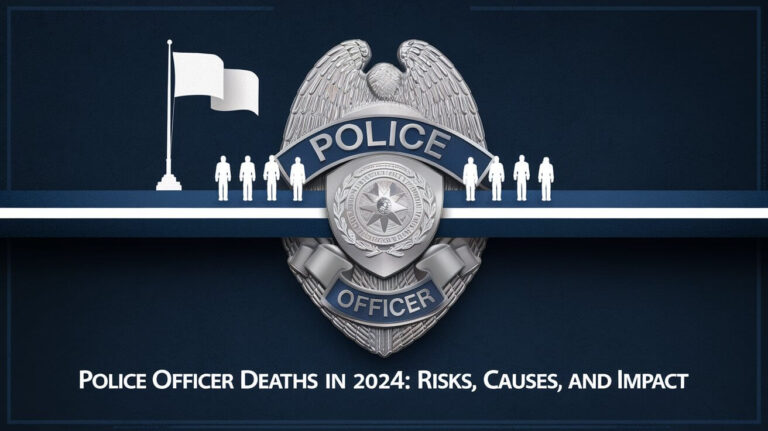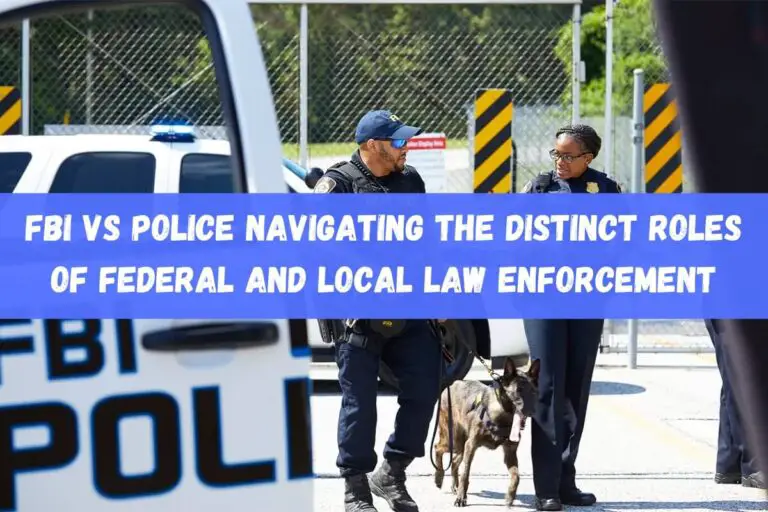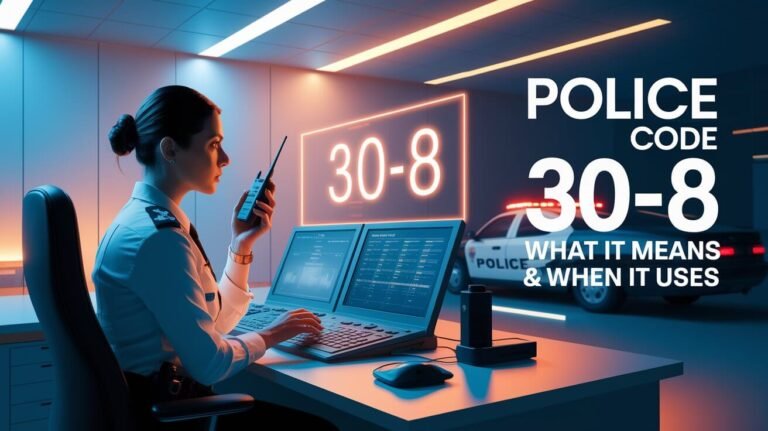Police Commissioner Vs Police Chief: Authority & Command Roles

In the world of law enforcement, the titles “Police Commissioner” and “Police Chief” often cause confusion. Are they the same role with different names, or are they distinct leadership positions? The answer lies in understanding the nuanced differences between these two crucial roles.
What makes a police commissioner different from a police chief? How do their responsibilities and authorities differ? As you read this article, you’ll learn about the key differences between these leadership roles. You’ll gain insight into the complex world of law enforcement command structures.
Key Takeaways
- Police commissioners are typically found in large metropolitan departments, while police chiefs are more common in small to medium-sized municipalities.
- Commissioners often have a higher average salary compared to chiefs, reflecting their broader scope of responsibilities.
- Commissioners focus on oversight, public policy, and public safety, while chiefs prioritize patrol, criminal justice, and community engagement.
- The rank hierarchy and chain of command can vary significantly between commissioner and chief-led departments.
- Differences in jurisdictional power, leadership style, and public accountability also distinguish these two crucial law enforcement roles.
Role Definition and Authority Structure
Police commissioners and police chiefs have different roles and authority levels. Commissioners oversee large police departments in big cities. Chiefs manage smaller departments or specific areas within a bigger organization.
Scope of Command
Commissioners have a wider role, covering many precincts or special units. They are the top person in charge of a police department. Chiefs, on the other hand, run individual precincts or stations. They handle daily tasks and supervise officers.
Chain of Authority
The way authority is structured differs between commissioners and chiefs. Commissioners might have deputy commissioners below them, creating a tall hierarchy. Chiefs have assistant chiefs or deputy chiefs directly under them, making their chain of command simpler.
Departmental Oversight
Commissioners are in charge of many areas, including precincts and special units. They make big decisions, like setting policies and managing resources. Chiefs focus on their own precinct or station. They oversee personnel and daily operations.
| Characteristic | Police Commissioner | Police Chief |
|---|---|---|
| Scope of Command | Oversees multiple precincts or specialized branches | Manages individual precincts or stations |
| Chain of Authority | May have deputy commissioners or other high-ranking officials | Often have assistant chiefs or deputy chiefs reporting directly |
| Departmental Oversight | Responsible for shaping policies and allocating resources across the department | Directly manages personnel and operations within a specific precinct or station |
Appointment Process and Selection Criteria
The way police commissioners and chiefs are chosen varies a lot. In big cities, mayors or city councils pick police commissioners. In smaller places, chiefs are usually appointed.
When picking leaders in law enforcement, experience, leadership skills, and education are key. The selection process is tough. It includes public hearings, background checks, and approval from the government.
- Most successful candidates for a chief of police position are at least the rank of captain or deputy chief.
- Rarely is a candidate selected for a chief’s position without a master’s degree.
- It is statistically more common for someone from within a police department to be chosen as the next chief of police.
There might be extra steps, like a doctor’s note to pass a “stress test.” Sometimes, an assessment center is used to pick the best candidates.
“Today, chiefs often sign three- to five-year contracts outlining salary and benefits.”
Choosing a police commissioner or chief is big for a community. Leadership skills and knowing how to deal with politics are crucial. These factors help a candidate succeed in these important roles.
Police Commissioner Vs Police Chief: Primary Responsibilities
Police commissioners and police chiefs are key in law enforcement. But, they have different main jobs. Commissioners focus on big plans, budgets, and policies for the whole department. Chiefs handle daily tasks, like managing people and watching over police work.
Administrative Functions
Commissioners oversee a police department’s admin tasks. This includes budgets, resources, and policies. They work with government and the community to make sure the department meets its goals.
Operational Control
Chiefs are in charge of the day-to-day law enforcement. They manage people, tools, and resources for safety. They decide on patrols, investigations, and special units.
Policy Implementation
Both roles involve policy implementation, but differently. Commissioners shape big plans and strategies. Chiefs focus on carrying out policies in their area.
Salary and Compensation Differences
The rank hierarchy in law enforcement greatly affects salaries and compensation. Police commissioners, at the top, usually make more than police chiefs. This is because of their higher-ranking positions.
Recent data shows police commissioners earn an average of $93,603 a year. Police chiefs make about $77,582 on average. Commissioners’ salaries range from $55,000 to $158,000. Chiefs’ salaries go from $49,000 to $120,000.
Several things affect these pay differences. These include the department’s size, location, and the officer’s experience. Interestingly, California pays the most to both commissioners and chiefs.
| Position | Median Annual Salary | Salary Range |
|---|---|---|
| Police Commissioner | $93,603 | $55,000 – $158,000 |
| Police Chief | $77,582 | $49,000 – $120,000 |
These salary differences show the unique roles in law enforcement leadership. Commissioners handle administrative and policy-making tasks. Chiefs focus more on day-to-day operations.
Educational Requirements and Professional Background
To become a police commissioner or police chief, you need a solid education and lots of experience. These are key for leading in law enforcement. The right education and experience help shape leaders in this field.
Academic Qualifications
Most police commissioners and chiefs have a bachelor’s degree. Business administration and criminal justice are common majors. As the field grows, more advanced degrees are becoming a must, even for top roles.
Experience Prerequisites
Both roles require a lot of experience in law enforcement. Candidates must have climbed the ranks and learned a lot. This experience is crucial for leading effectively in these important jobs.
| Law Enforcement Position | Educational Requirements | Experience Prerequisites |
|---|---|---|
| Police technician | High school diploma or equivalent | No experience necessary |
| Police officer/patrol officer/police detective | High school diploma to Bachelor’s degree | Varies based on employer and local regulations |
| Police sergeant | Varies | Around 5 years of law enforcement experience and passing an examination |
| Police lieutenant | Varies | Many years of experience, passing an examination, and demonstrating leadership and public relations skills |
| Police captain | May require a college degree | Experience in supervisory roles, skills in command, leading in stressful situations, and strong public-speaking abilities |
| Deputy police chief | Bachelor’s degree in Criminal Justice, additional training like the FBI National Academy | Several years in a law enforcement management position |
| Chief of police | Often a master’s degree in public administration or a related field | Typically promoted from within the department, with experience as a captain or deputy chief |
Jurisdictional Power and Legal Authority
Police commissioners and police chiefs have different roles. Commissioners oversee big cities or many precincts. Chiefs manage smaller areas or departments.
Both can arrest people, issue warrants, and lead law enforcement. But, their power varies by state laws, city rules, or county orders. This means some have more power than others.
| Jurisdiction | Police Commissioner | Police Chief |
|---|---|---|
| Scope of Authority | Larger metropolitan areas or multiple precincts | Smaller jurisdictions or specific departments |
| Legal Powers | Ability to make arrests, issue warrants, and direct law enforcement activities | Ability to make arrests, issue warrants, and direct law enforcement activities |
| Defining Factors | State laws, city charters, or county regulations | State laws, city charters, or county regulations |
The power and authority of police leaders are key to public safety. Knowing these differences helps ensure laws are enforced fairly and well.
Leadership Style and Management Approach
Police commissioners and chiefs have different leadership styles. Commissioners focus on strategy and policy. Chiefs handle daily operations and make quick decisions.
Decision-Making Authority
Commissioners have more power to make big decisions. Their choices affect the whole department. Chiefs, on the other hand, decide for their specific area.
Staff Relations
Both need to work well with their teams. But, their ways of doing so differ. Chiefs talk directly with officers often. Commissioners manage senior staff and big projects.
Strategic Planning
Commissioners plan for the long term, focusing on the whole department. Chiefs focus on local strategies and their team’s structure.
“Effective police leaders exhibit commitment to the job and mission, high levels of honesty, integrity in decision-making, and humility to foster a positive work environment.”
Today’s police leaders are looking into new styles. They’re interested in transformational leadership. This approach puts people first and aims for team goals through inclusivity.
Community Relations and Public Accountability
Both the police commissioner and police chief roles involve significant community engagement. The scope and focus may differ. Police commissioners often focus on city-wide initiatives and high-level stakeholder relationships. Police chiefs, on the other hand, have more direct community involvement within their jurisdictions.
Keeping strong community relations is key for both roles. It helps build trust, improve public safety management, and ensure effective municipal governance.
Public accountability is another important aspect. Both commissioners and chiefs must regularly report to city councils or mayors. They also participate in community forums and address public concerns. Being transparent in operations and policy is crucial for keeping public trust.
| Characteristic | Police Commissioner | Police Chief |
|---|---|---|
| Community Engagement | Focus on city-wide initiatives and high-level stakeholder relationships | More direct community involvement within their jurisdictions |
| Public Accountability | Regular reporting to city councils or mayors, participating in community forums, and addressing public concerns | Regular reporting to city councils or mayors, participating in community forums, and addressing public concerns |
In recent years, there’s been more focus on police accountability. This is due to high-profile incidents of police misconduct. Cities like New York have strengthened oversight, empowering civilian review boards and independent monitoring bodies.
These efforts aim to increase transparency, strengthen community relations, and ensure police departments are accountable to the communities they serve.
“Maintaining strong community relations is crucial for both positions, as it helps build trust, enhance public safety management, and ensure effective municipal governance.”
Closing Remarks
The roles of police commissioner and police chief show how complex law enforcement leadership is. Commissioners oversee big departments with a wide strategic view. Chiefs manage smaller areas with a hands-on approach. Both need lots of experience, strong leadership, and a deep commitment to safety and community.
It’s key to understand the differences between these roles for effective law enforcement. As demands for openness and democratic oversight grow, knowing the strengths and challenges of these roles is vital. This knowledge helps drive positive change and uphold high public service standards.
Police commissioners and chiefs are crucial in shaping law enforcement’s future. They ensure their departments meet community needs. By working together, innovating, and striving for justice, they help create a safer, fairer society for everyone.






